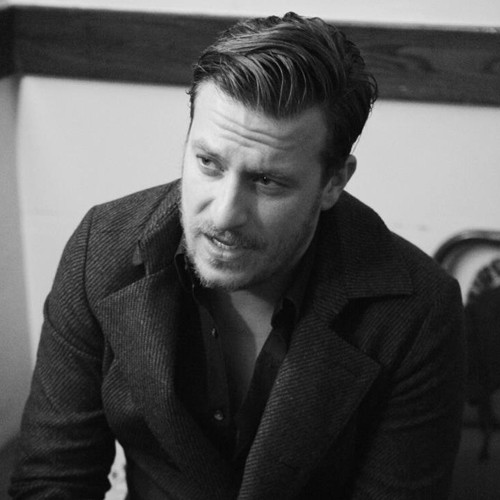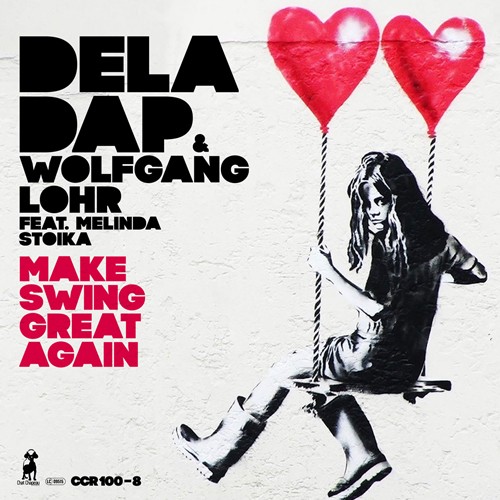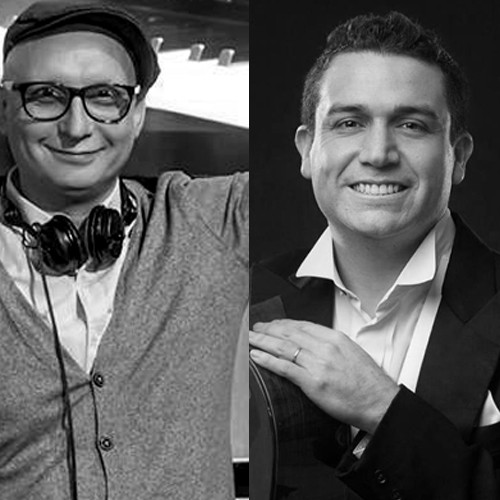Interview with Parov Stelar
“I received enough rejections to wallpaper my entire bathroom”
Parov Stelar mastermind Marcus Füreder speaks about his first steps in electronic music, the art of sampling, theme parties and he explains why Etage Noir started a booking agency.
Interview by: Jakob Buhre Date: 2013-12-10
Marcus, the music video “Keep on Dancing” is about boxing. When you started out, did you have to fight for recognition?
Marcus: Yes, very much. Art in general is always hard, I guess. You need to prove your staying power. You have to get hit in the face a few times if you want to stay in the ring.
What were some major setbacks for you?
Marcus: When I was just starting out I submitted songs to around 50 record labels. I received enough rejections to wallpaper my entire bathroom.
Is that really what you did?
Marcus: Yes.
What did the rejection letters say?
Marcus: They all say the same thing: “We’re not interested…but we would like to keep your materials on file” (laughter). Though you know, when I listen today to the tracks I did back then, I probably wouldn’t have responded at all.Still, in the moment you are so convinced of what you’ve done that rejection is hard to take. It’s in those situations that you decide whether you want to stay down, or keep dancing.
And what about your friends and the clubs? Was it hard to convince them of what you were doing?
Marcus: Yes, of course. I had been studying art and suddenly I was making music. My friends didn’t take me seriously. When I played my first tracks for them two weeks later, their response was “Hm, yes, well….” (laughter). But you have to endure it; it’s part of the growth process.
Did you ever play gigs in empty clubs?
Marcus: Thank God that rarely happened. I was only really unlucky once. It was five or six years ago at a festival in Munich. 10,000 people were expected, but nobody knew about it. In the end only 29 people showed up. It was pretty bizarre.
In “Keep on Dancing” we hear the voice of Marvin Gaye. Did you expand your sampling field to the 1960s and 70s?
Marcus: I’ve been interested in this period for a while now. My album Coco borrows elements from soul, as does The Princess. For me it’s important to connect things; they needn’t be limited to jazz or swing. I would also like to sample pop music, but there it’s more difficult to obtain permissions.
What exactly is difficult?
Marcus: If you sample pop it’s not just about that one keystroke of a synthesizer – that I can do myself. You also want to sample things that are catchy such as vocal lines anyone can identify. In contrast to the Marvin Gaye number I normally avoid putting the original song in the foreground. I take just a small portion and combine it to create something new.
And what if you take an entire hook…
Marcus: Even if I take a single line – “It’s a sin” from the Pet Shop Boy song, say – it’ll take a long time to clear. By sampling music from the 1930s I avoid some of these difficulties. I’m not as interested in the vocal phrases or hooks of the 1930s as in its style of recording, whose sound can no longer be reproduced today.
For one of your well-known songs you sampled a complete vocal line from the 30s. Was it hard to get that cleared?
Marcus: We tried. We’ve been trying for years but nobody feels responsible for it. We hired two law firms with expertise in this area. But it was impossible. Every place we turned people told us, “We can’t help you.”
Your current album is titled The Art of Sampling. Do you think sampling culture is on the way out?
Marcus: From what I hear in the charts, no.
Because a lot of chart songs use samples?
Marcus: Not always the songs on the current charts. But sometimes people simply don’t know when samples are being used. I have to admit that in the beginning I didn’t realize that all the Daft Punk albums – with the exception of the last – were based on samples. If you visit the website WhoSampled.com you can see who sampled what. This question plays a much bigger role than most people think.
Have you received requests from people who want to sample Parov Stelar?
Marcus: Yes. But I haven’t been happy with what they are doing, so I’ve yet to give permission. Honestly, if I like what somebody is doing, I would say: Yes, perfect. Do it.
That has yet to happen?
Marcus: No.
I guess it’s hard to convince you musically because you’re such a perfectionist…
Marcus: When it comes to creating sounds – yes. It’s too easy to take a sample and then put a beat under it. My approach is more complex. In a single song sometimes I end up with 200 or 300 audio tracks that add up to something new. That’s what makes it so exciting to me – that something new materializes.
This year I talked about Electro Swing with a former German big band leader, Paul Kuhn, who described it has something mechanical.
Do you agree that a lot of Electro Swing productions these days don’t really swing?
Marcus: They don’t, but what was swing? On the one hand, the word swing was a technical description; one the other hand, the practice of swing was a lot more. It was an attitude toward life, a lust for life. I think this aspect should play the bigger role. And whether this swing really exists in the music… I mean, it is called electro swing, not swing. It has its own right to exist.
Do you try to put the swing rhythm into your productions?
Marcus: Not consciously. Swing to me is less important than groove. It has to have a good groove. If it does, the groove might also swing. But I’m less concerned with the swing genre than the old recordings. Their feeling, the old microphones, and how the people played back then – this you can’t reproduce. We could also call it electro museum – it’d be the same to me.
The Electro Swing scene is known for fans’ dressing up in 1930s style for the parties…
Marcus: I don’t come across this very often because we skip the Electro Swing parties. We’ve rarely played one.
Weren’t you at a big Electro Swing event in the UK?
Marcus: We played at the HMV Forum. And, yes, there were some people who dressed up. It was a welcome change. It brought color to the crowd, which was really nice. But I never had the feeling I was playing at a theme party.
Do you see Electro Swing events as theme parties?
Marcus: Sometimes they seem like that. Limiting myself to such parties wouldn’t be enough for me, personally. I can’t bear to see another phonograph. I’d prefer a synthesizer, but you can’t have the one without the other.
Does this mean that you want to do more pop?
Marcus: Pop music has always been important to me. I never wanted to go in just one direction.
You once said in an interview that you try to work on a single song two days in a row, because otherwise you’d forget were you stored all the samples. Did your hard drive ever crash while you were working on a project?
Marcus: Yes, that happens constantly. I’ve lost some big hits this way (laughter). It’s bitter: suddenly the screen is black, and then stays that way. But you also learn from these situations. Now I have seven hard drives in my studio. Whenever I get the feeling I have a good song, I start backing up regularly.
Some musicians who start out with sampling later grow tired of it and want to create their own sounds. What about you?
Marcus: That would be the same like a pianist that says: I’m going to quit the piano and play trumpet. Sampling is an instrument. You have an unimaginable treasure trove of material that you can use and transform into new things. I play the computer; that’s my instrument. It’s not a question that would occur to me.
You create a lot of your melodies too…
Marcus: That’s right. Sampling is not the main part of my music. I don’t work like Fatboy Slim, who used only samples. I have to write my own song first – the bass line, the melody, the synthesizer, the drum programming… The sampling is just the song’s finishing touch, so to speak.
The Art of Sampling was released by Universal Music. How would you characterize your current collaboration with the company?
Marcus: We have a tape lease deal. It’s a creative musical partnership that allows us to stay independent. Because Universal trusts us, we retain our freedom. Parov Stelar has been growing for 15 years, and it would be stupid if someone came and said: We have a totally new model; let us tell you how it works. Universal has confidence in us in creative matters and accepts our decisions. At the same time they give us advice. The two together makes for good synergy.
In our last conversation you said that the people at major record labels are more bankers than musicians.
Marcus: This is partly true. But if you want to build a company… Parov Stelar has become a business. I can’t go on tour without a tour manager, without somebody who assembles the drums. At some point there were 25 of us. Sure, in the beginning I was tinkering with beats in my kitchen, which is a funny story, and I‘d still be fine with doing that. But then things grew, and we needed 25 people to make it work. And to run such a company you need a banker to do the numbers, someone who stands outside the party and says: Decisions need to be made. At the same time, we need to preserve certain freedoms. But you can’t generalize about a major record label in this regard; it always depends on the deal you have. Not every marriage remains happy. But I also know a lot of people who are happily married.
So now that Universal is handling the business end of things, do you have more time to concentrate on the music?
Marcus: This would be the case had we signed an artist contract. But the contract we have now is different. We get to remain Etage Noir.
What are your plans with Etage Noir?
Marcus: We don’t want to grow just for sake of growing. Rather, we want to continue to focus on quality. We want to remain a small family and take good care of the people in it.
You have since started your own booking agency, working with artists such as Yossi Swing and Umami.
Marcus: That’s right. I think we had some 3.800 requests for Parov Stelar in 2012. We could have played ten times a day. Because we couldn’t meet demand, we thought it would be nice to say: Parov isn’t available, but we can offer you someone else who suits your budget. That’s how we came up with the idea. We didn’t say to ourselves: Let’s start a booking agency.
But the booking agency allows you to profit from the ongoing interest in Electro Swing…
Marcus: To be honest, not that much. I guess the personnel costs are higher than the bookings fees we earn. If there weren’t some idealism behind it, the project would be doomed to fail.











